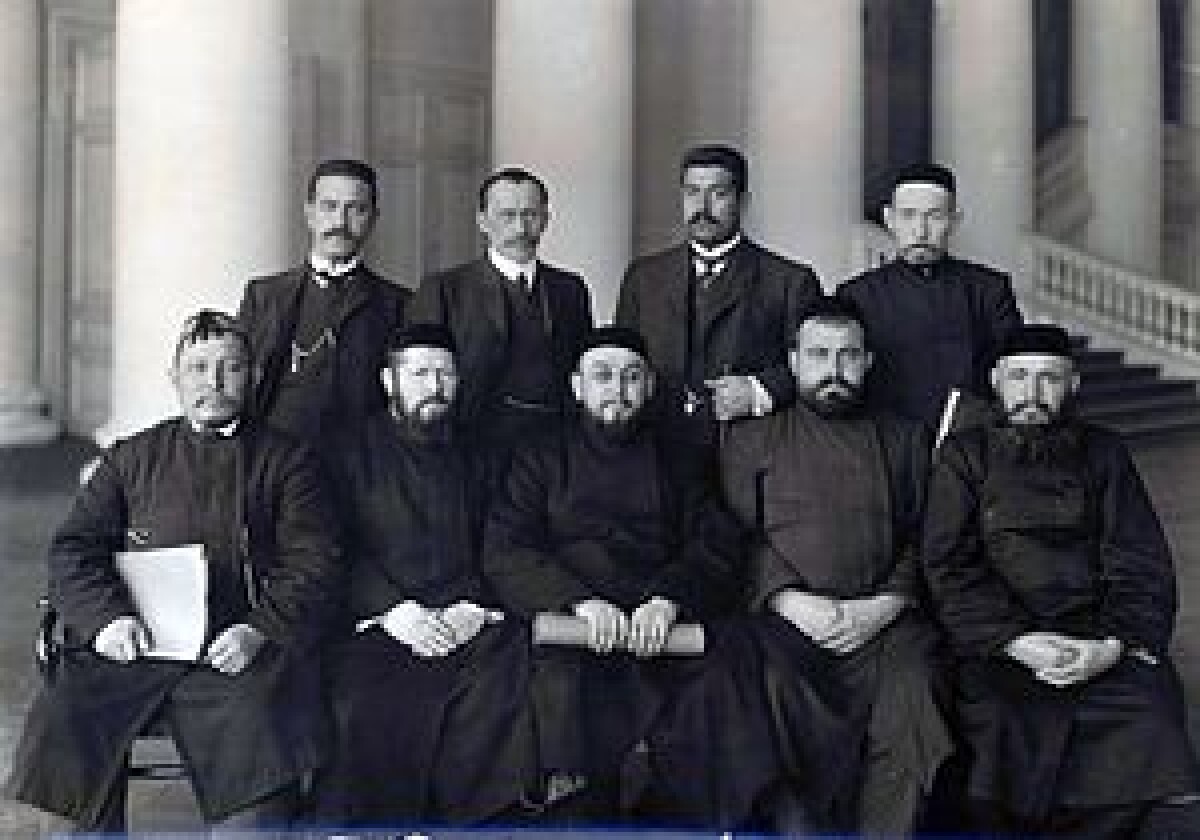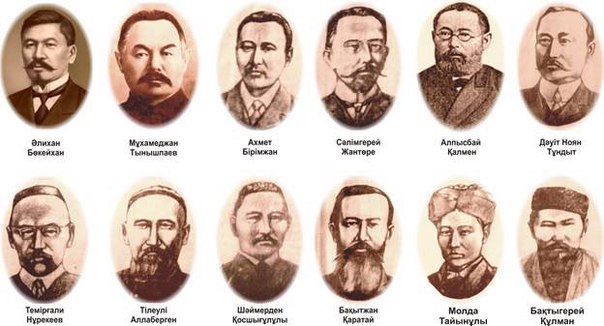
Elections of II State Duma took place in January - February 1907, based on the electoral law, which was published in November 11, 1905.
It should be noted that the above-mentioned law limited choice in the Duma representatives of national minorities. Despite the fact that the country's non-Russian peoples made up the majority of the population, in the II State Duma their representatives accounted for only 36%, it was 187 out of 518 of the total number of deputies.
In Turkestan were elected in the II State Duma only six deputies, while from 322 thousand of Russian and "alien" population of seven deputies. Nevertheless, operated II convocation Duma turned to Muslims most prosperous in quantitative and qualitative terms. In the II Duma were elected 37 deputies - Muslims who organized two factions, and sent their representative to the governing bodies.

From the Kazakhs in II State Duma were elected V. Allabergenova, she represented Turkestan in Syrdarya Region, A. Beremzhanova - Steppe Region, Turgay oblast, Sh. Koshegulova - Steppe region, Akmola oblast, B. Kulmanova - Astrakhan Province, Inner Kirghiz Horde, T. Narakunev - Steppe region, Semipalatinsk oblast, M. Tynyshpaev - Turkestan, Semirechensk region and S. Karataeva - Steppe region, Ural oblast. Of these, three had lower education (madrasas) and the others had higher education.
For example, B.A. Kulmanov graduated from the Eastern Division of St.Petersburg University.
According to their social status the elected were mostly of middle-class society. Among them were only four peasants and a worker.
In the II Duma was a split of the Muslim deputies - under the influence of the left wing was formed separate Muslim labor group ("Muslims hezmat teyfase"). It included six deputies: G. Atlasov, G. Badamshin, Z. Zeyealov, H. Messagutov, A. Nedzhmetdinov, and K. Khasanov who constituted a special group of Muslim Trudoviks.

Since April 1907 the group began to publish its own organ "Duma". Therefore, this group was also called "Dumchelar" ("Duma members"). Muslim Labour Party entered into controversy with the main Muslim faction, formed on the basis of the party "Ittifak al-Muslimin", claiming that "Ittifak" protected only the interests of the rich and for a genuine revival of the Muslim nation it was necessary to organize a Muslim working party which would be able to defend the interests of the broad masses of working population.
"Ittifak" program was also significantly adjusted downward radicalism and focused mainly on solving the religious and cultural problems. Liberal-minded Muslim politicians defended their newfangled program for the introduction of a complex secular education in their native language as an alternative to the system of Russian-heterogeneous schools developed in due time by N.I. Ilminsky and supported by the government. They also put forward the idea of cultural-national autonomy for the Muslim peoples that existed in two versions - the territorial and extraterritorial.
In the "Muslim working group" were separated six deputies - Muslims. Muslim faction adopted a program of "Muslim Union." Its members elected Chairman M.A. Biglov and two secretaries.
In the First Duma deputies - Muslims signed Cadet projects, because they were not yet institutionalized. Of the 12 bills designed by Cadets were five signatures of deputies - Muslims. The Muslim group alone made three of 44 draft laws of II State Duma.
March 31, 1906 by S. Karataev was prepared third project "On the resettlement policy of the authorities."
The next project, "the draft on the abolition of restrictions on political and civil rights associated with religion and nationality" was supported and signed by 18 Muslims. Among them were the signatures of S. Karataev, Sh. Koschegulov and A. Beremzhanov. This project was made on May 18, 1907.

Kazakh deputies elected in the I and II State Duma
The government sought to control the election process and to regulate the election of the candidates suitable for themselves. In the view of the authorities was not only the regulation of the amount and quality of deputies. Thus, they cut off the unwanted candidates at different stages under different pretexts and accusations. With the “Vyborg Appeal” authorities could remove prominent deputies.
Establishment and operation of Muslim faction in the State Duma became an important indicator of the development of the political consciousness of the Russian Muslims. The focus of the Muslim factions in the II State Duma were three main issues: agricultural issues, problems of democratization of political life and the problem of national-religious relations. Thus, the Muslim faction played a prominent role in the activity of the Duma II.
Although approved by Nicholas II on April 17, 1905 Regulation "On strengthening religious tolerance" which declared the freedom of religion, in the Russian legislation remained a number of legal restrictions relating to religious affiliation.
The government published a decree and Manifesto to dissolve the Duma of the 2nd convocation, accusing the Duma in delaying the consideration of bills and government revenues and expenditures, as well as the fact that some members participated in a conspiracy against the state.
June 3, 1907 was issued a new electoral law, which restricted access to the Duma of certain categories of the population, including the territorial and ethnic lines, among which was Turkestan.
By Makhabbat BOLSHINA
Translated by Raushan MAKHMETZHANOVA
Use of materials for publication, commercial use, or distribution requires written or oral permission from the Board of Editors or the author. Hyperlink to National Digital History portal is necessary. All rights reserved by the Law RK “On author’s rights and related rights”. To request authorization email to kaz.ehistory@gmail.com or call to (7172) 79 82 06 (ext.111).
